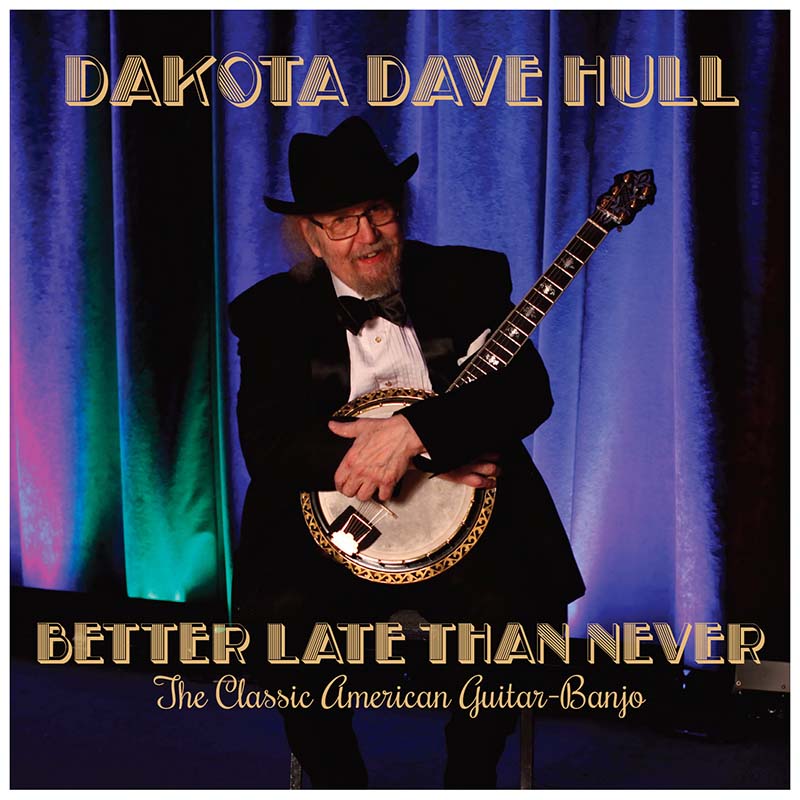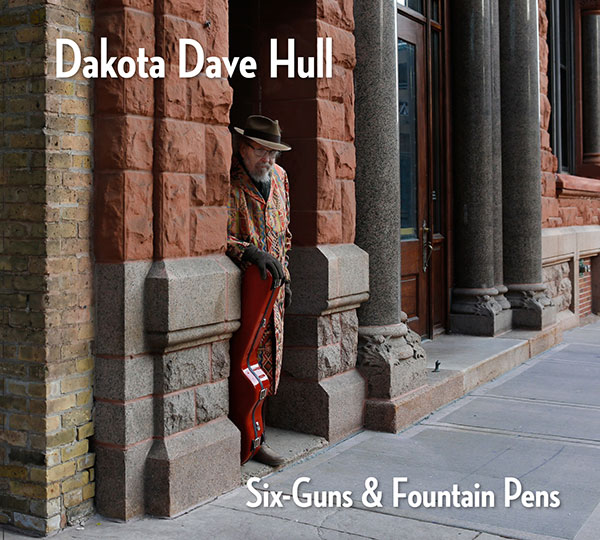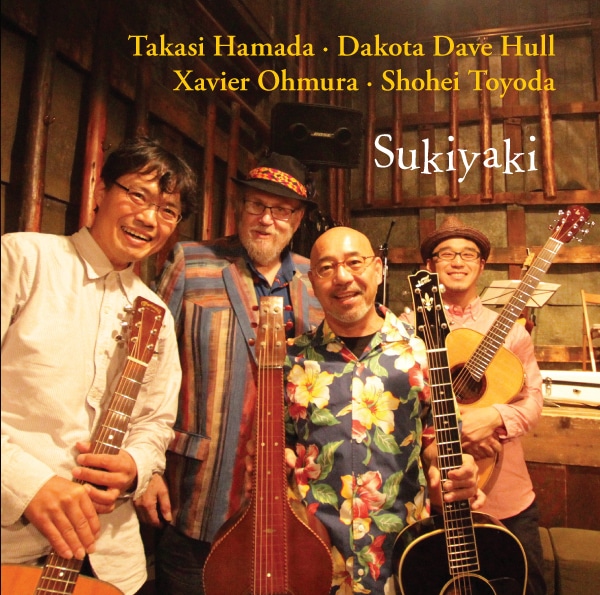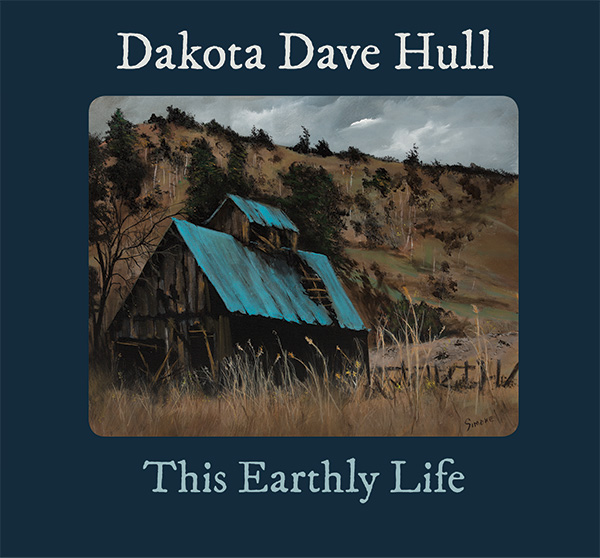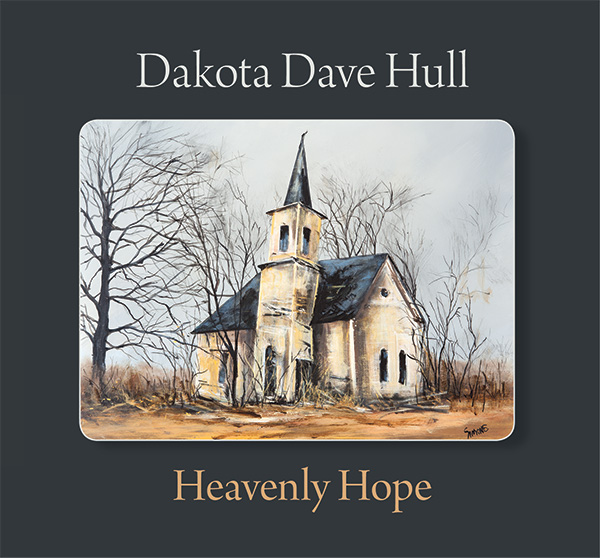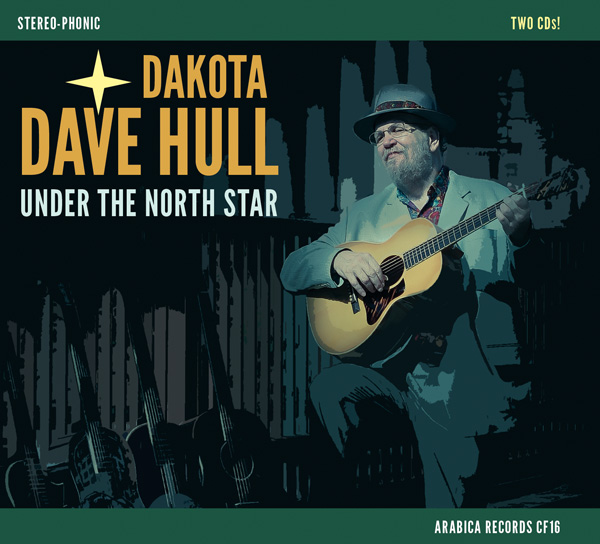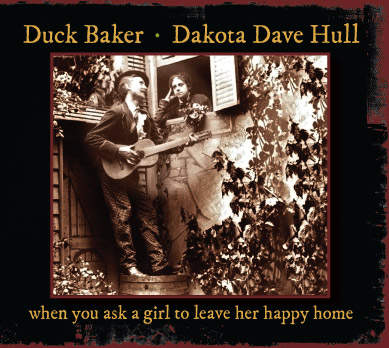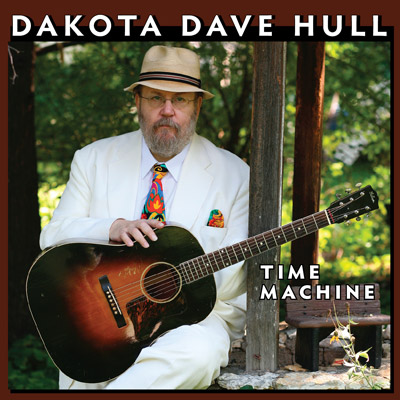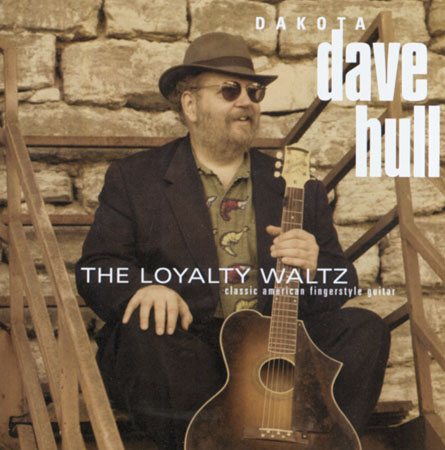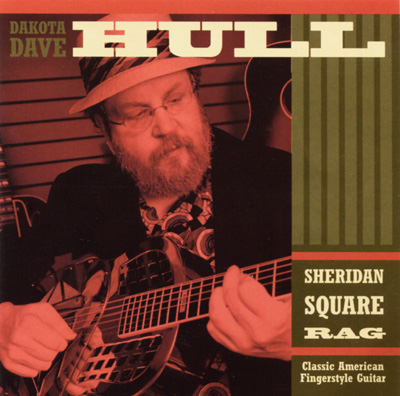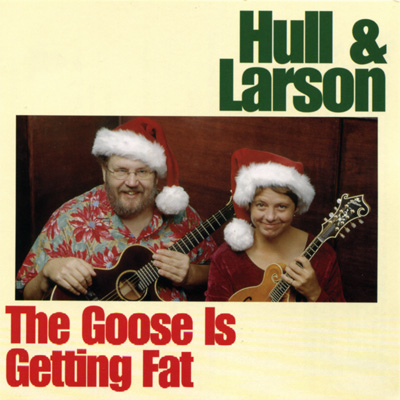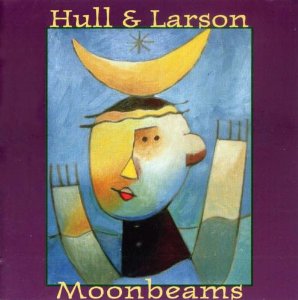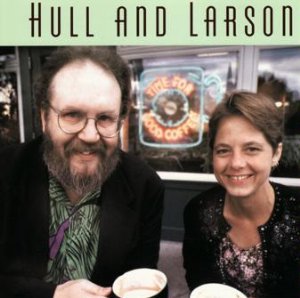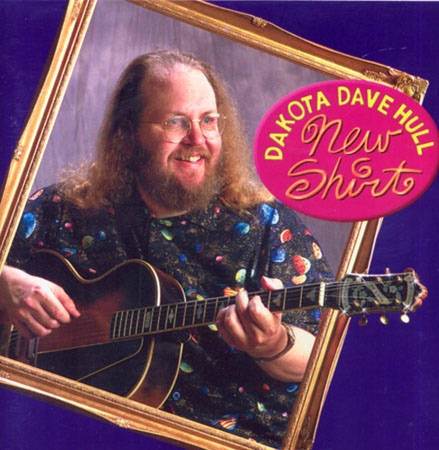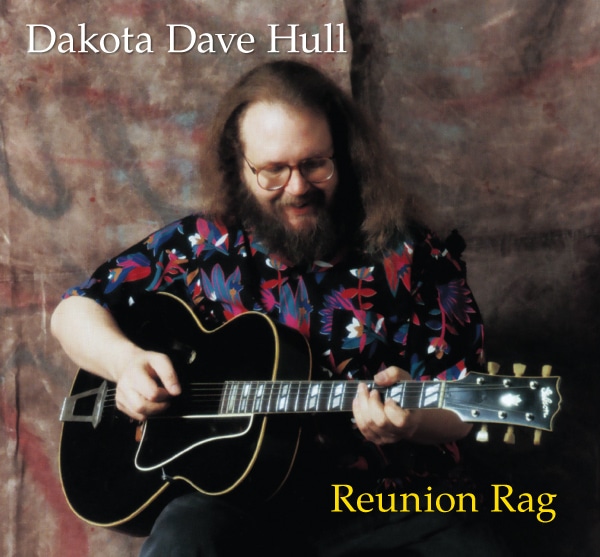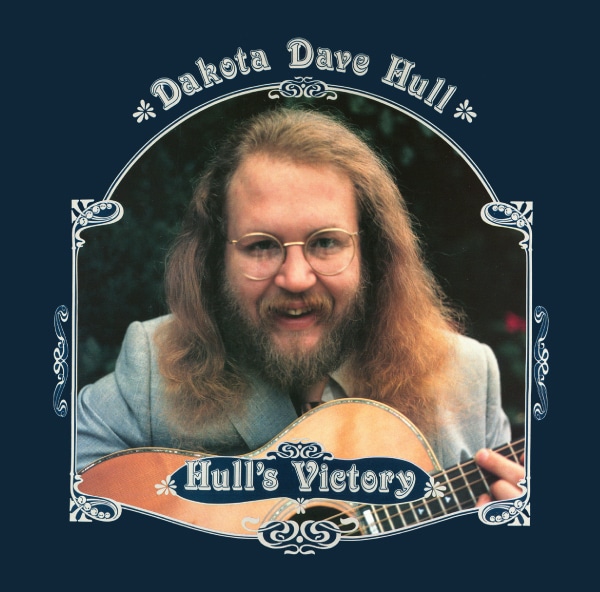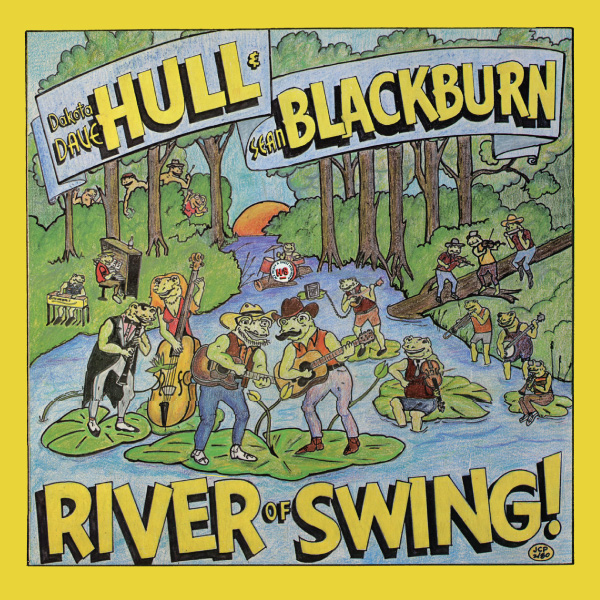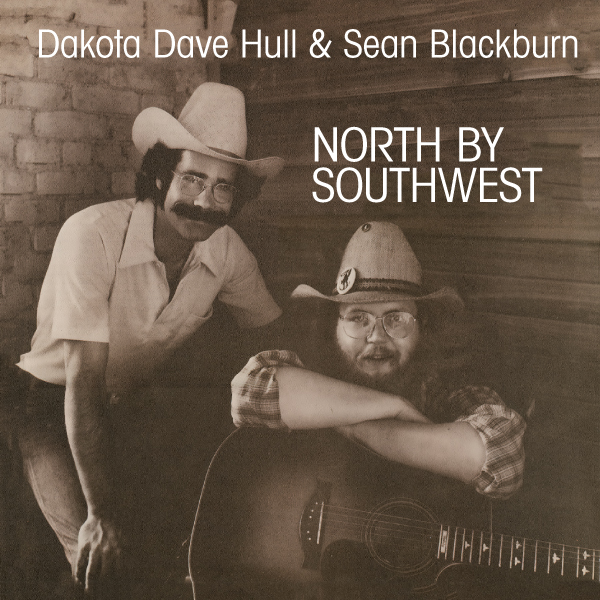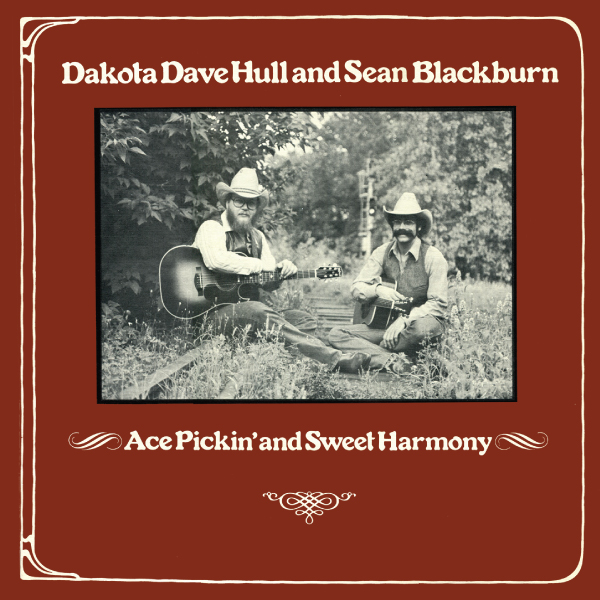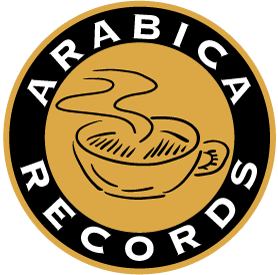Another Cup
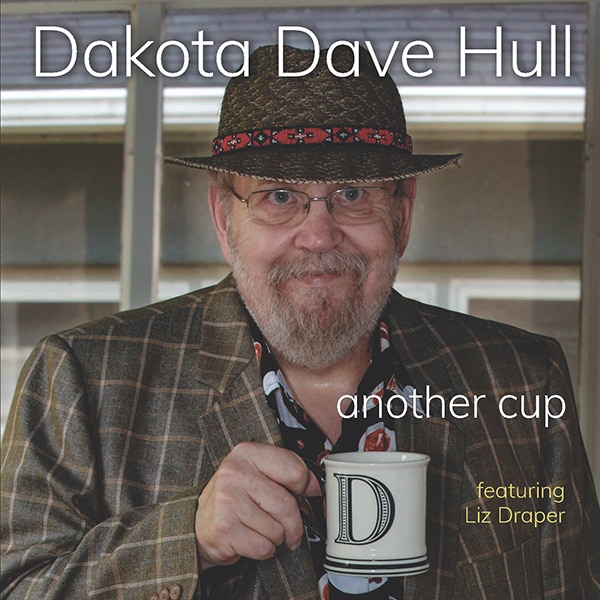
Another Cup · Dakota Dave Hull and Liz Draper
Arabica Records CF-28
$15.00
Dakota Dave Hull guitar, resophonic guitar, guitar-banjo
Liz Draper bass
Track List
- Lulu’s Back in Town (Dubin, Warren) 2:42
- Java Jive (Drake, Oakland) 3:11
- Tell Old Bill (traditional) 3:46
- Petit Waltz (Hull) 2:16
- Adams Street Rag (Hull) 4:50
- Buddy Bolden’s Blues (Bolden, Morton) 2:27
- Hang Me Oh Hang Me (traditional) 2:57
- Honolulu Bump (Hull) 3:38
- I’m Gonna Sit Right Down and Write Myself a Letter (Young, Ahlert) 3:26
- Impala Rag (Hull) 3:44
- John Johanna (traditional) 3:28
- Trilogy: Wagoner’s Lad · My Home’s Across the Smoky Mountains · Waterbound
(traditional) 4:39
Credits
- Produced by Dakota Dave Hull for Arabica Productions
- Recorded and edited by Dave Hull at Arabica Studio, Minneapolis
- Remixed and mastered by Miles Hanson, Steve Wiese and Dave Hull at Creation Audio, Minneapolis
- Photos of Dave and Liz by Dale B. Hanson
- Coffee gear photos by Dave Hull
- Layout by Nick Lethert
- Dave proudly endorses Hoffman Guitars, National Reso-Phonic Guitars, Fairbanks Guitars, New Era Guitars, Brentrup Guitars, Martin Guitars, John Pearse Strings, Waverly Tuning Gears, Shubb Capos, St. Paul Guitar Repair, Tangible Technology, and True Stone Coffee Roasters.
- Thanks to Cheryl Hall, Jerry Clark, Scott Hull (my favorite #2 nephew gave me the coffee cup on the cover pic), Brack, Toby Walker, Scott Alarik, and Liz Draper.
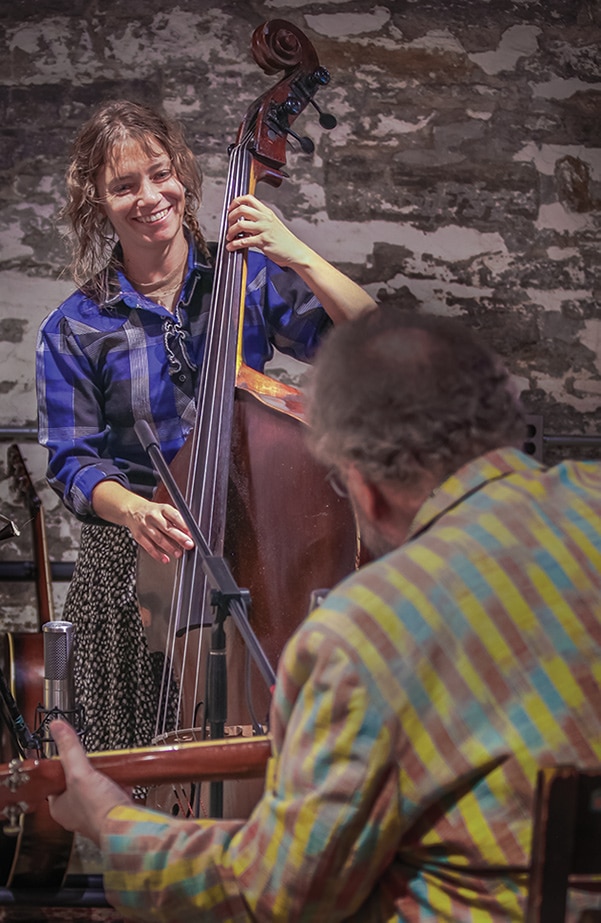

Notes from Dave
Back in the late 1950s and early ‘60s, the days of the folk scare, a lot of records featured the services of an upright bass player. (Actually, both the instrument and the player needed to be upright—no easy feat in those days.) I remember being blown away by Russ Savakus’ bass break on Ian and Sylvia’s Early Morning Rain from the 1965 album of the same name. Simple and perfect. Something about the tone of the instrument has always appealed to me. Lately I’ve been been thinking more and more that it would be fun to record some of my tunes and arrangements as duets with a bassist. Fortunately I didn’t have to look far to find the right musician. Folks who’ve heard my Under the North Star CDs will recognize Liz Draper as the anchor on the group stuff. In these parts it seems she’s always busy doing great music with great folks. Undoubtedly the most in-demand bassist in town. I asked if she was up for another CD with me and she agreed and that was that.
A number of these tunes harken back to those folk scare days, too. Hang Me Oh Hang Me, Buddy Bolden’s Blues, and Tell Old Bill were all part of Dave Van Ronk’s repertoire at one time or another. I’ve known the three tunes that make up the trilogy that closes the CD since I was a teenager. I’m guessing that I first heard My Name is John Johanna on a recording by the New Lost City Ramblers.
Folk music led me to Western swing and Western swing led me to traditional jazz. It’s all part of the same continuum in my view. Fats Waller, one of the great stride pianists, singers, arrangers and stylists, oozed creativity. A couple years ago I acquired his complete recordings. I worked up I’m Gonna Sit Right Down and Write Myself a Letter and Lulu’s Back in Town after listening to nothing but Fats on a pair of long road trips. Those who know me understand that my cover of the Ink Spots’ Java Jive needs no explanation.
Rounding out the current offering are four originals. One waltz, one jazzy number, and two four-part rags.
I hope you’ll sit down with a cup of great coffee and enjoy this CD. After that, I hope you’ll have another cup, and listen again.
—Dakota Dave Hull, Minneapolis, Minnesota, 2018
Tune Notes
For the guitarists who want to know, four tunes, (tracks 3, 4, 7, and 12) are in drop D tuning and the rest are in standard. I used a number of great instruments on this album: (a) A Grand Concert Johann Brentrup guitar with oak back and sides, (b) a National Reso-Phonic Style 1, (c) a circa 1890 Fairbanks Electric guitar-banjo with a new neck by Hoffman Guitars, (d) the New Era Prairie State Big Boy, (e) my 1935 Gibson Jumbo, and two guitars from Dale Fairbanks: (f) an L-00 and (g) a Roy Smeck Radio Grande. Liz’s bass is an unlabeled 5/8 instrument, most likely of German origin, from the late 19th or early 20th century. Microphone setup was pretty simple. A Groove Tubes model 1a on the bass, a Groove Tubes Velo 8T on the guitar, both through a UA 2-610 preamp.
- Lulu’s Back in Town (f)—A Fats Waller classic, my friend Tommy Lieberman used to sing this song. That’s probably where I first heard it. It’s big fun to play. I might not get back home at all, Lulu’s back in town!
- Java Jive (e)—The Ink Spots recorded this ditty back in 1941 when a good cup of coffee was hard to find. Fortunately for me, that has gotten a lot easier. I love the sensitive subtlety of the lyric: A cup, a cup, a cup, a cup, a cup, boy!
- Tell Old Bill (c)—From Carl Sandberg’s American Songbag. After Bob Gibson recorded it in 1957, they passed a law that folk singers had to perform it. It’s mysterious. It doesn’t tell you how old Bill died but I’d guess it probably has something to do with his unwillingness to leave the downtown women alone. My version owes a lot to Dave, although it’s played in a different key. Oh no, this can’t be so, my Bill left home about an hour ago, this morning, this evening, so soon.
- Petit Waltz (g)—Another little waltz from what’s left of my brain.
- Adams Street Rag (a)—Cheryl Hall and I moved into a wonderful old house built in 1900, just as classic ragtime was coming into vogue. It seemed like a good idea to write a rag about it so that’s what I did.
- Buddy Bolden’s Blues (e)—An early New Orleans musician. Buddy Bolden — sadly — was never recorded. Jelly Roll Morton remembered him as “the most powerful trumpet player I’ve ever heard or ever was known.” Morton claimed to recall the tune as something Bolden played regularly. Open up the window, let the bad air out, I thought I heard him shout.
- Hang Me Oh Hang Me (g)—Written from the point of view of a condemned man, this tune shows up with many different titles: Been All Around This World, Diggin’ on the New Railroad, My Father Was a Gambler. Alan Lomax recorded Justis Begley singing it in 1937, but it doesn’t resemble this version very much. Grandpa Jones had the first commercial recording in 1946. I wouldn’t mind the dyin’, it’s the lyin’ in the grave so long, poor boy, I’ve been all around this world.
- Honolulu Bump (b)—Naturally this one sounds best on the National. Thanks to Delta Airlines I had an extra day in Hawaii at a great hotel on Waikiki Beach along with a nice discount on my next adventure. I always try to plan a little extra time, just in case there’s an opportunity to volunteer my seat. And a bonus, too: Delta does better than any other US based airline in accommodating musicians and their guitars. Thank you.
- I’m Gonna Sit Right Down and Write Myself a Letter (b)—Almost anything Fats Waller touched was golden, and this song is no exception. I’ll Make Believe it Came from You.
- Impala Rag (e)—That Chevy was the best car I ever had. Got it secondhand in 2006 when it was a little over a year old and drove it for eleven years. Right around 300,000 miles when I finally replaced it. From Nova Scotia to Vancouver Island to San Diego to Florida—many places more than once—that automobile knew the way.
- John Johanna (c)—From Kelly Harrell. A man travels to Arkansas looking for work but only finds starvation and despair. In some versions he goes into some kind of dimensional warp; the train out keeps dropping him off back where he started. I never knew what misery was ’til I went to Arkansas.
- Wagoner’s Lad Trilogy (b)—Three songs about separation. Wagoner’s Lad dates to a 1730 English broadside. Sometimes it shows up as My Horses Ain’t Hungry. My Home’s Across the Smoky Mountains comes from Frank Proffitt, who called it I’m Going Back to North Carolina and set it in the Blue Ridge Mountains, as have many other singers, from Clarence Ashley to Larry Richardson (who did the definitive bluegrass version) to Joan Baez. Waterbound, also known as Down in North Carolina, rounds out the set. Hard luck is the fortune of all womankind.
—Dakota Dave Hull, 2018
Notes from Scott Alarik
I’ve known Dakota Dave Hull for nearly 50 years, and he’s always been a True Believer, as devoted to the community of folk music as he is to his own music. He was flashier in our wilder days (to look at us is to know we never had “salad days”), because young bucks have to prove themselves. He even wore the moniker “Fargo Flash,” a predictor of Dave’s droll gift for the self-mocking boast. Today his playing wears the grace of the master, so sublimely melodic it can shroud his world-class chops.
What has never changed is the unbridled joy he takes in folk music and the people who love it. There’s a way he peeks over his glasses at the best bits, grinning like a kid, making sure you’re having as much fun as he is. I dare anyone to catch his show and remain in a bad mood.
But don’t let that fool you. Dave is a towering figure in his field, considered a peer by the finest folk musicians this country has produced, including Doc Watson, Norman Blake, Utah Phillips, Paul Geremia, and Dave Van Ronk, who called him “one of the best guitarists in the world.”
In his 20th recording, Another Cup, Dave returns to the music that first made him a True Believer, classics from the innocent early days of the folk revival, before folk became a business and our innocence became something else. Sprinkled with a few simpatico originals, the set is given even more ‘60s purity by Liz Draper’s stand-up bass, echoing the supple lines of Russ Savakus and Bill Lee.
I love Dave for all the gracious ways he’s changed, but even more for the lovely ways he has not. He’s still folk’s Happy Warrior, still a True Believer.
—Scott Alarik, Cambridge, Massachusetts, 2018
